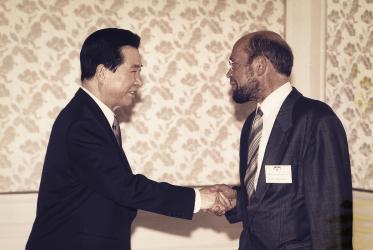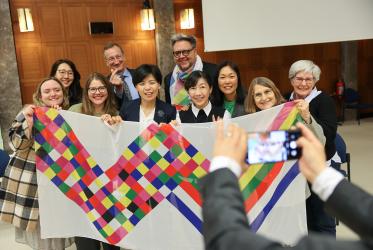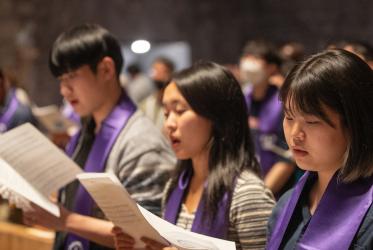Displaying 1 - 20 of 29
Ecumenism in the Philippines means hope and resilience
22 August 2023
Squid Game et Ganggang Sullae dans un atelier sur la pauvreté des jeunes
20 September 2022
Squid Game and Ganggang Sullae: workshop reflects on youth poverty
16 September 2022
Codo con codo oran por la unificación pacífica de la Península de Corea
07 September 2022
Side-by-side, they pray for peaceful unification of the Korean Peninsula
06 September 2022









